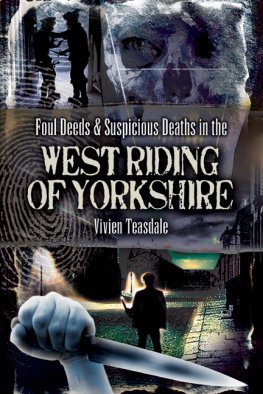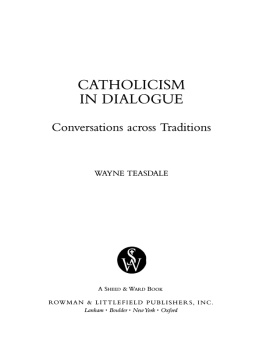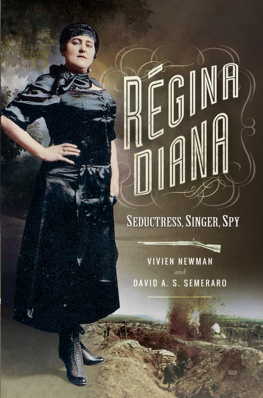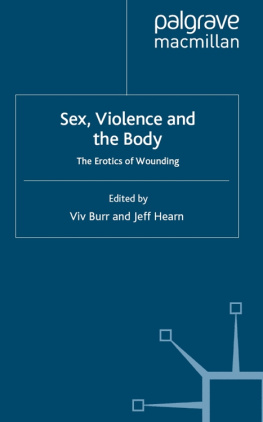First published in Great Britain in 2014 by
Pen & Sword Military
An imprint of
Pen & Sword Books Ltd
47 Church Street
Barnsley
South Yorkshire
S70 2AS
Copyright Vivien Teasdale 2014
ISBN: 978 1 78346 356 5
EPUB ISBN: 978 1 47384 654 8
PRC ISBN: 978 1 47384 643 2
The right of Vivien Teasdale to be identified as Author of this work has been
asserted by her in accordance with the Copyright, Designs and Patents Act 1988.
A CIP catalogue record for this book is available from the British Library.
All rights reserved. No part of this book may be reproduced or transmitted in
any form or by any means, electronic or mechanical including photocopying,
recording or by any information storage and retrieval system, without permission
from the Publisher in writing.
Designed by Chapter & Verse Book Design
Printed and bound in England
By CPI Group (UK) Ltd, Croydon, CR0 4YY
Pen & Sword Books Ltd incorporates the Imprints of Pen & Sword Aviation,
Pen & Sword Family History, Pen & Sword Maritime, Pen & Sword Military,
Pen & Sword Discovery, Pen & Sword Politics, Pen & Sword Atlas, Pen &
Sword Archaeology, Wharncliffe Local History, Wharncliffe True Crime,
Wharncliffe Transport, Pen & Sword Select, Pen & Sword Military Classics,
Leo Cooper, The Praetorian Press, Claymore Press, Remember When,
Seaforth Publishing and Frontline Publishing.
For a complete list of Pen & Sword titles please contact
PEN & SWORD BOOKS LIMITED
47 Church Street, Barnsley, South Yorkshire, S70 2AS, England
E-mail:
Website: www.pen-and-sword.co.uk
Contents
Acknowledgments
As always many people have helped in finding and/or providing information for this book. All have my grateful thanks, but special acknowledgments go to the following:
West Yorkshire Archive Service in Kirklees and Wakefield for their support and patience in producing resources and suggesting further avenues of research. Other archive staff who were equally helpful include those at the University of Huddersfield, the Brotherton Library, Leeds and at Bury archives. My thanks also to library staff at Huddersfield Local History Library for letting me loose on the Kodak machine.
I very much appreciated the help of Wendy Taylor and Richard Hey of the Huddersfield Light Opera Company for allowing me access to their archives, Melanie Williams for access to the Royds Hall autograph book and John Garside for sharing his extensive knowledge of the activities of local soldiers during the Great War. Pam Cooksey generously provided information and photographs relating to the Woodhead family and Janet Green and Chrystal Roberts shared their family stories as well as photographs. Support also came from the Huddersfield Examiner and the Huddersfield and District Family History Society. My thanks also to the staff at Pen & Sword Books Limited who have answered queries and given advice throughout the production of this book.
The author would like to thank the following for their kind permission to reproduce photographs and documents:
Peter Carr, Holmfirth Picturedrome, recruitment poster p18 and 32. A. C. Roberts, Earnshaw brothers p28, Mike Woodhead, medals and photograph of A. L. Woodhead p15 and 16, Janet Green, photo of Gordon Donaldson p48 and 49, William Kenyon, photo outside Denby Dale Auxilliary Hospital p50, Clare Archer and the Blue Cross Society, poster of War Horse p63.
The 25 series maps appear with acknowledgement to the Ordnance Survey. Headlines and advertisements on p38, 54, 75, 108 and 119 are from the Huddersfield Examiner 1914-19. Those on p11 and 20 are from the Huddersfield Chronicle 1914-1916.
The Taylor Library, propaganda poster p90, photo of a Zeppelin III p91, Archduke Ferdinand and his wife p115 and the Lusitania p117.
All other photographs are from the authors collection.
Last, but not least, thanks as always for the support and encouragement of my family.
Chapter One
The beginning
Plaque on the drill hall, Huddersfield
Whilst the news in 1914 was more concerned with the troubles in Ireland, there were still reports about the murmurings and manoeuvrings on the continent. As tension mounted, the government stated that there were no treaties that bound England to fight for any other country neutrality was a definite option. The Huddersfield Chronicle took a slightly different view, commenting that in the event of war Britain would strike with the same strong arm and same undivided force which has always made its stroke so potent a factor in European politics. (HC, 1 August 1914)
On 3 August 1914 one headline in the Huddersfield Examiner announced that Germany has declared War on Russia, but also commented that it is clear there is no obligation [on England] to fight for France if war should break out
The next day England declared war on Germany. Not in order to support France or Russia but because Germany completely ignored Belgiums refusal to allow German troops to march through its country and England had guaranteed Belgiums right to neutrality.
Stranded on the continent
Many people had been accidentally caught up in the war. Huddersfield firms traded all over the world and often had close contact with their European counterparts, especially in Germany. Mrs Sarah Hellowell Carter, of Marsh, had been in Frankfurt staying with her son Edwin, who was there on business, and said on her eventual return that the German military were showing greater activity around the towns and everywhere patriotic songs were being played. The English vice-consul had advised her to leave and shed immediately gone to Cologne, where there was much confusion with tourists from all over the world trying to escape from the threatened war. Then shed managed to meet a Thomas Cooks tour, travelled with them in what she described as a cattle truck to the Belgian border and thence to Ostend where she caught a boat home. Even the mayors family was caught up in the problem. His eldest daughter Emma Blamires was in school in Versailles and she too was forced to leave, being woken at 4 am on a Sunday and not reaching London until midnight after a traumatic journey.
Herbert Brook, a teacher, had an even more exciting time. Hed been in Germany to see a friend, John Falck, another Huddersfield teacher who had won the Martin-Fisher Travelling Scholarship and was working in Cologne. Brook was told to leave the country. Despite all the bridges being guarded and everyone being scrutinised carefully, he began his journey and managed to get to Neuss. He then set off from Cologne on the bank holiday and reached Dolheim, where he and a number of others were hustled out of the train and into a large waiting room crowded with German soldiers. (HE, 18 August 1914) He was advised to walk to the frontier about a mile away, but there he was stopped and ordered back to Dolheim to get a passport from the German commander. He fell in with two Englishmen and a couple of Belgians and together they returned to Munchen Gladbach, where they were arrested. Although the Belgians had passports countersigned by the police they were still taken to prison, but Brook and his companions were advised to walk to Dusseldorf and try to get to Drusberg. They hired a car but were again arrested and the car searched for bombs.
At the British consul in Dusseldorf they met another dozen stranded Englishmen. By this time Brook had only 1 10/- (1.50) left but paid five shillings (25p) for a passport. Eventually they got to Drusberg and stayed in lodgings, where they were kindly treated by the German landlord. Despite not venturing out on to the streets, they were arrested again and taken to the Oberbergermeister, or lord mayor, who eventually gave them papers to allow them to cross the Dutch frontier into Holland at Emmerich.









